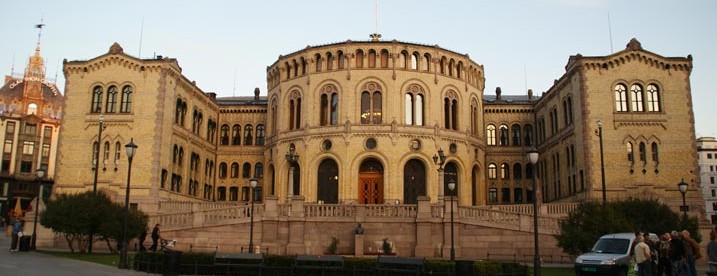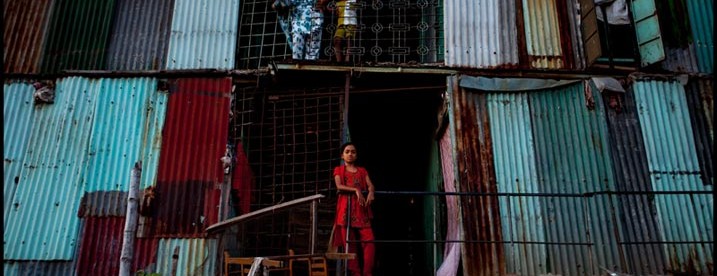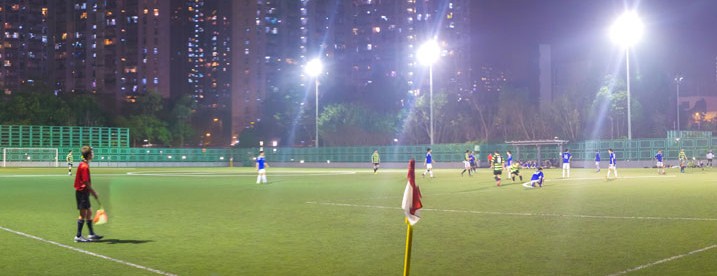By Sophie Haggerty, June 15, 2015

Other Countries Should Follow Norway’s Example
On June 5, the Norwegian Parliament unanimously voted to establish a public registry of corporate ownership information, becoming the latest country to tackle the abuse of anonymous companies through increased transparency.
Anonymous companies are one of the top tools used by criminals, kleptocrats, tax evaders, and terrorists to launder dirty money with impunity. Requiring companies to publicly disclose in a central registry their ultimate, human, beneficial owner(s) is regarded as the gold standard in tackling the abuse of these phantom firms.
Norway’s strong endorsement of transparency comes as no big surprise: the Scandinavian country routinely ranks near the top of transparency and anti-corruption rankings, and Norway was the first country to get behind the push to curb illicit financial flows. Their support on this topic dates back to the formation of the Norwegian Government-led Task Force on the Development Impact of Illicit Financial Flows in 2007 and their financial backing of the Financial Transparency Coalition at its inception in early 2009–long before illicit flows topped the global agenda.
In establishing a public registry, Norway joins Denmark and the United Kingdom—the first country to commit to a public registry of beneficial ownership information back in October 2013. The UK followed through with its commitment this March by passing historic legislation needed to fulfill its pledge.
By Tom Cardamone, June 4, 2015

Illicit Financial Flows Have a Devastating Impact on the Poorest Countries in the World
What do you do when “the big number,” used to estimate the global volume of illicit financial flows (IFFs), begins to lose its luster?
Over the past year or so, GFI has begun to hear—in various venues and by various people—the warning to audiences that they shouldn’t “focus on the big number.” A trillion dollars is a global number, these observers say, and can’t be used to assess the impact at the country level. Or, they contend, the trillion dollars in IFFs is from a cluster of emerging market countries and therefore is skewed to make it look as though all developing countries have huge problems when really only a few do. GFI decided to go back to the data to see if the criticisms were accurate.
As a result, this week we are publishing “Illicit Financial Flows and Development Indices: 2008–2012,” a study that looks at illicit flows from the poorest countries to determine the development impact in those places that do not appear on the top-10 list of IFF-source nations by gross volume. Rather than focus on the Chinas and Russias and Mexicos of the world, we examined IFFs in nations that appear, for example, on the Least Developed Countries list or the Highly Indebted Poor Countries list—82 countries in all were examined. What we found was simply alarming.
By Heather Lowe, June 2, 2015

GFI’s Heather Lowe Proposes Reinvesting FIFA Forfeiture Funds in Inner-City Youth Soccer Programs
Following from my blogs on Friday and Monday about different aspects of the FIFA case, I’d like to talk a little bit about the forfeiture funds and penalty payments that the U.S. Department of Justice (DOJ) will be collecting in this case and what will happen to them. A proceeding like the FIFA case can result in a really large pile of cash that will be under DOJ control. Unless the Defendants are acquitted of the charges against them at trial or the DOJ decides to drop the case against a Defendant for some reason, we can expect that the DOJ will be collecting from those Defendants the bribe money that they received, anything they bought with that money that will then be auctioned off (for example, check out the list of real estate that will likely go under the hammer in Florida and Georgia from paragraph 343 of the indictment), and, possibly, additional fines in the form of penalties. It is going to add up.
Recouping Expenses
It is obviously critical that the DOJ, Federal Bureau of Investigation (FBI), Internal Revenue Service (IRS) and other government agencies that were involved in this case are able to recoup the money they spent working on this investigation over the past few years. Another way of looking at it is that they need to keep a sizable chunk in order to ensure that they have the resources to work cases like this over the next few years. No matter how you slice it, that’s important to American taxpayers as well, who pay less in taxes because the DOJ and other agencies are able to fund part of their work through forfeiture and penalty payments instead of through tax dollars. Win-Win.
By Heather Lowe, June 1, 2015

The FIFA Bribery Case Could Lead to Compensation for the Victims of FIFA’s Alleged Corruption
You may have noticed that the U.S. Department of Justice (DOJ) is making sure that we have an idea of whom the victims in this FIFA corruption case are. They noted it in their press release, talked about it at their press conference, and included it in the indictment at paragraph 73. I agree with the Department of Justice that the victims of this case are important. This blog is about why this case could potentially lead to compensation for those victims in a way you might not have considered.
So who are those victims? The DOJ’s indictment describes how FIFA, the FIFA confederations, the confederation members (including national member associations), youth leagues, and development programs all lost out on funds from the marketing contracts that may have been more lucrative for FIFA if there had been competitive bidding for the contracts. In addition, other sports marketing companies that may have lost out on a bid to secure the marketing rights—or may never even had a chance to bid—are also victims.
For those of us that work on development issues, this is a particularly important point. Commercial bribery distorts markets. Among other things, it can:
- prevent honest firms from winning bids and therefore stymie their growth,
- block new companies from entering a market, and
- weaken that market in general because the best service, price, processes, etc., are no longer going to rise to the top, keeping market standards low and depriving consumers of better quality services and products.
When a country or industry is plagued by endemic bribery, these negative economic effects increase exponentially and a country’s economy cannot grow. That’s why the DOJ doesn’t want large-scale bribery taking root in the U.S., and rightly so.




